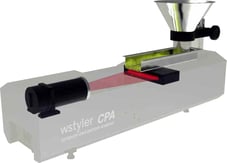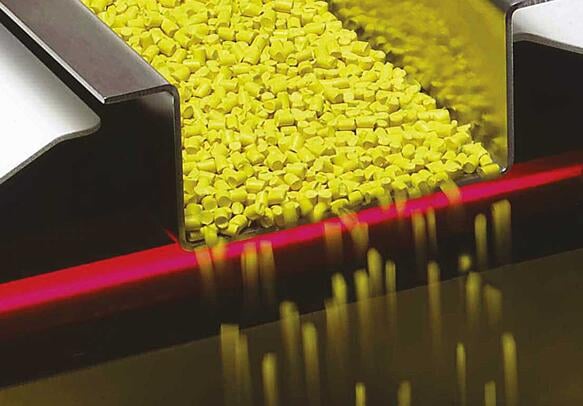How to Request a Computerized Particle Analyzer (CPA) Demo
For decades, test sieve analysis has been a prominent particle analysis method manufacturers have implemented into their quality control programs. But as industry standards evolve and more materials become regulated, lab operators seek faster, more efficient ways to test their material.
The W.S. Tyler Computerized Particle Analyzer was designed to test material that typically takes upwards to 20 minutes to test with a sieve shaker and test it in minutes while also minimizing human error. But the CPA is a reasonably significant investment, so it's vital that you're confident it's right for you.
The best way to gauge how it will contribute to your particle analysis process is to request a demo.
W.S. Tyler has spent decades developing particle analysis routines for lab operators across countless industries and is always looking to introduce new, innovative techniques that will better your odds of achieving accurate and repeatable results.
To guide you through the process of requesting a Computerized Particle Analyzer demo, this article will cover:
- What a CPA is
- The appropriate time to request a demo
- The steps you need to take to request a demo
- What a CPA demo entails
What Is a Computerized Particle Analyzer?
The W.S. Tyler Computerized Particle Analyzer (CPA) is our dynamic image analysis unit designed to work with dry, free-flowing material, identifying the size and shape of particles as fine as 10 microns. It utilizes a high-resolution line scan camera to scan 28,000 lines per second, equivalent to about 10,000 particles per second.
When Would I Request to Host a CPA Demo?
Typically, you would submit a demo request after we compile a test report of the material your company works with. This is because a test report provides you with data needed to deliver tangible evidence that a superior or purchaser can look at and understand the value a CPA can bring to your operation.
What Step Do I Need To Take To Receive a CPA Demo?
To request a demo, you will first need to reach out to our team and express interest in one of the CPA units. We will then respond with a questionnaire that will ask the following:
- What is the particle size you're trying to measure? (Is it within the capabilities of the unit?)
- What material are you measuring?
- What are the environmental conditions in your lab setting?
- Is the material you're working with wet or dry?
- Does the material tend to agglomerate?
- What are you trying to measure: Size analysis or shape analysis?
After you respond to these questions and we begin to gauge whether the CPA is a good fit for you or not, you will then be required to send a sample of your material with any associated SDS sheets. This will help us to ensure the material is appropriate to be tested with a CPA.
At this point, we will begin to zero in on the specific device we feel is a good match for you and send you approximate costs. This is to give you a better idea of what to expect and identify if it fits your budget or not.
After we established the CPA unit that will best accommodate your needs, we will coordinate with you and your team to schedule the actual demonstration.
What Does a CPA Demo Look Like?
Once a demo date has been scheduled, we will first work out the logistics of getting the CPA physically in your lab. This means the unit will be shipped to your facility several days prior to the demo or, if you're local, we will drive the unit to you.

We will then arrive on-site on the day scheduled and set up the unit alongside the lab operator and the staff the will be using it. At this point, we will run whatever material you will use the unit for day-to-day.
NOTE: The demo works best if it is set up and done within the lab that the CPA will be placed. This will allow you to see how it's going to work within your ecosystem firsthand.
Now, it is important that everyone who will be using the CPA is present on the day of the schedule.
Faster Testing Leads to Cost Savings
The W.S. Tyler Computerized Particle Analyzer analyzes the size and shape of the individual particles in your material, providing you with real-time metrics. Understanding whether a CPA unit is suitable for you or not is critical, so we always recommend that you demo any CPA unit before investing.
As you now have a better understanding of what the demo process consists of, you should now gain a better understanding of the impact the CPA can potentially have on the expenses surrounding your particle analysis process. This will further help you prove the CPA's worth to your team.
As we help you navigate the particle analysis industry, W.S. Tyler strives to introduce you to the latest technology that will help improve the efficiency of your particle analysis process.
To learn what the faster testing times mean for the finances of your operations, read the following article:
About Ronnie Brown
Ronnie is the Content Writer for W.S. Tyler and has four years of experience as a professional writer. He strives to expand his knowledge on all things particle analysis and woven wire mesh to leverage his exceptional writing and graphic design skills, creating a one-of-a-kind experience for customers.



